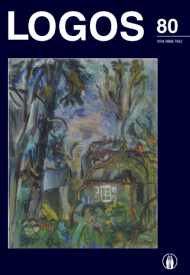Atsakymas Mano Kritikui G. Vyšniauskui
A Reply to My Critic – Vyšniauskas
Author(s): John F. X. KnasasSubject(s): Metaphysics, Epistemology, Existentialism, Philosophy of Religion, Ontology
Published by: Visuomeninė organizacija »LOGOS«
Keywords: human destiny – natural and supernatural; notion of being; fauxizing; personalist theodicy;
Summary/Abstract: By emphasizing two points from a recent monograph on Aquinas and evil, I attempt to reply to the critique of Gintautas Vyšniauskas who reviewed my Aquinas and the Cry of Rachel. First, Aquinas’ philosophical thoughts on evil are soberly earthbound. Though an afterlife and a resurrection are philosophical possibilities, they are not philosophically demonstrable truths. Aquinas will not stretch the truth for religious gain. He leaves philosophers to stop, pause and dream. Second, his philosophical psychology of the human as an intellector of analogical being possesses resources to explain a persistent disposition of personalist philosophers in the evil debate, e.g., McCord Adams, Stump, Hick, Dostoevsky, Camus, Flew, and Maritain, to overvalue the human person. In the human mind, being can become intensely associated with certain things, such that they acquire a value out of all proportion to the philosophical truth. The high dignity that personalists claim for the human is actually a theological truth. Again, Aquinas is shown not to be pushing a theological agenda. Conclusi on. Aquinas’ thoughts on the afterlife, resurrection, and the play of the notion of being in human psychology, show that he is no ideologue. In other words, they show that in his philosophizing we find “a free search for truth, an atmosphere of risk and endless questions, an effort to begin from arche, not a real passion for thought.”
Journal: LOGOS - A Journal of Religion, Philosophy, Comparative Cultural Studies and Art
- Issue Year: 2014
- Issue No: 80
- Page Range: 73-78
- Page Count: 6
- Language: Lithuanian

